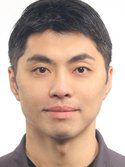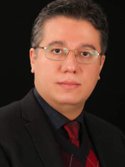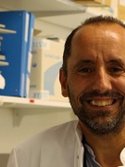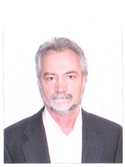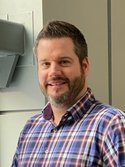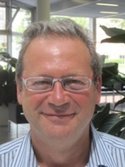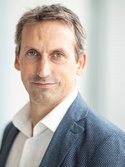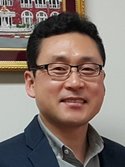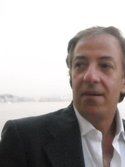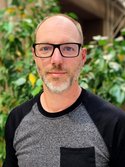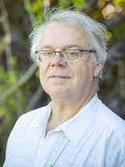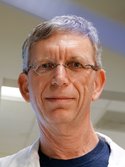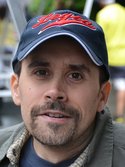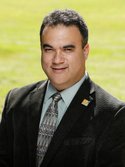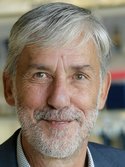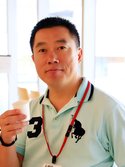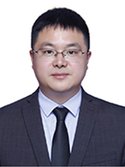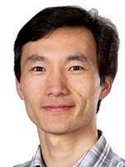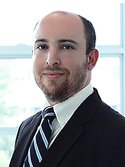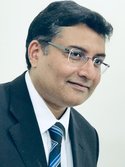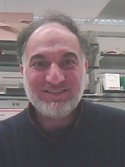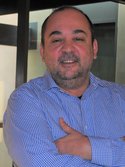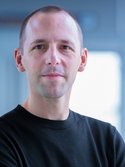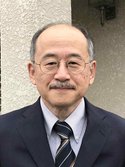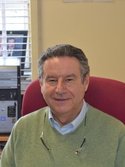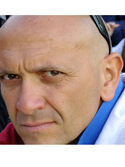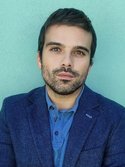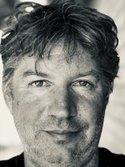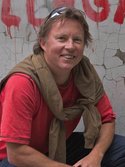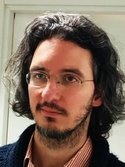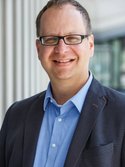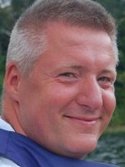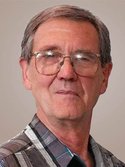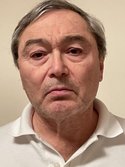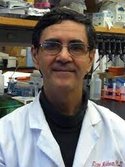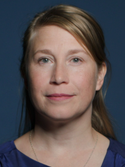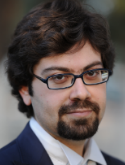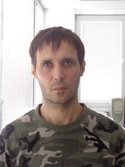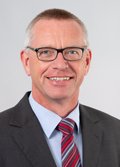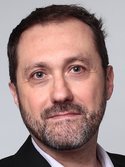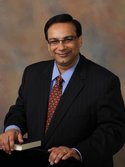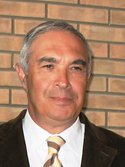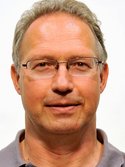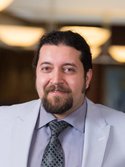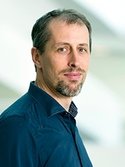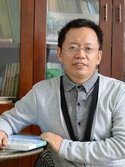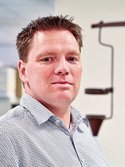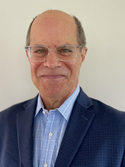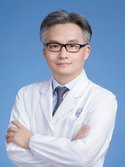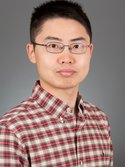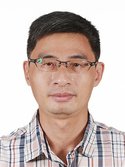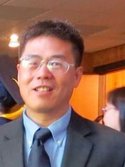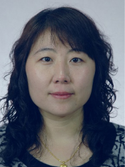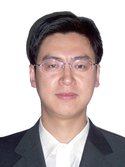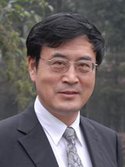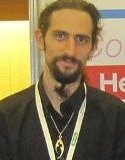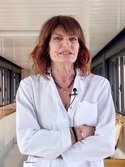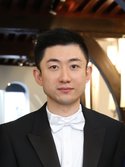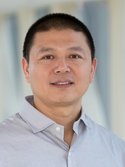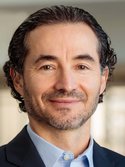-
Home
-
About JCTR
-
Gold Open Access
-
Issues
-
Editorial board
-
Author guidelines
-
Publication fees
-
Online first
-
Special issues
-
News
-
Publication ethics
-
Partners
-
Submit your manuscript
-
Submit your review report
-
Editorial Office
-

This work is licensed under a Creative Commons Attribution-NonCommercial 4.0 International License. ISSN print: 2382-6533 ISSN online: 2424-810X
Translational research editorial board
Filter by field:
Sort by name:
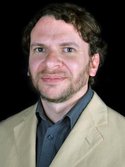
Alejandro Samhan-Arias
Neurosciences
Free radical scavenging
Metalloproteins
NADPH oxidases
Oxidative stress
Dr. Alejandro K. Samhan-Arias is an assistant professor in the Biochemistry Department of the School of Medicine at the Universidad Autónoma de Madrid (UAM) and the Instituto de Investigaciones Biomédicas 'Sols-Morreale' (CSIC). He is dedicated to comprehending both the beneficial and harmful properties of free radicals and reactive oxygen and nitrogen species, with a particular focus on reactions occurring in biological membranes. His primary interests also encompass the physical biochemistry and structural biology of electron transfer proteins, particularly metalloproteins, whose function might be altered by specific microenvironments, such as those provided by specific lipid membrane domains. He has expertise in a multitude of biophysical and spectroscopic techniques.
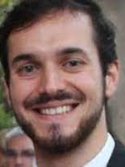
Alessio Nocentini
Organic chemistry
Drug design
Enzyme modulators
Enzymology
GPCR
Molecular dynamics
Molecular modelling
Spectroscopy
Structure-based design
Alessio Nocentini is an academic researcher from the University of Florence. The author has contributed to research on topics such as carbonic anhydrase modulators for treating cancer, inflammation, infections, ocular pathologies, and neurodegenerative diseases. He has an H-index of 40 and has co-authored 215 publications, receiving 5057 citations.
Dr. Alexander TH Wu received his Ph.D. (Anatomy and Cell Biology) from Queen's University, Kingston, Ontario, Canada. He is currently an associate professor affiliated with several departments at Taipei Medical University: the Graduate Institute of Biomedical Informatics and the Ph.D. Program for Translational Medicine. His research interests primarily focus on the translational front. He is deeply involved in exploring agents that target cancer stem-like cells (CSCs) and profiling the genes or networks involved in the generation and maintenance of these CSCs across various cancer types. He also has a keen interest in cancer immunotherapies, cell-based therapies for tissue regeneration, and applications of extracellular vesicles derived from mesenchymal stem cells.
Prof. Dr. Alireza Heidari, Ph.D., D.Sc. is a Full Distinguished Professor and Academic Tenure of Chemistry and also Enrico Fermi Distinguished Chair in Molecular Spectroscopy at California South University (CSU), Irvine, California, USA. He has got his Ph.D. and D.Sc. degrees from California South University (CSU), Irvine, California, USA. Furthermore, he has double postdocs in Project Management, Oncology, Human Cancer Tissues and Synchrotron Radiation from Monash University, Melbourne, Victoria, Australia and also in Nanochemistry and Modern Molecular Electronic–Structure Computations Theory from California South University (CSU), Irvine, California, USA. His research interests include Biophysical Chemistry, Biomolecular and Biomedical Spectroscopy, Quantum Chemistry, Nanochemistry, Modern Electronic Structure Computations, Theoretical Chemistry, Mathematical Chemistry, Computational Chemistry, Vibrational Spectroscopy, Molecular Modelling, Ab initio & Density Functional Methods, Molecular Structure, Biochemistry, Molecular Simulation, Pharmaceutical Chemistry, Medicinal Chemistry, Oncology, Synchrotron Radiation, Synchrocyclotron Radiation, LASER, Anti–Cancer Nano Drugs, Nano Drugs Delivery, ATR–FTIR Spectroscopy, Raman Spectroscopy, Intelligent Molecules, Molecular Dynamics, Biosensors, Biomarkers, Molecular Diagnostics, Numerical Chemistry, Nucleic Acids, DNA/RNA Monitoring, DNA/RNA Hypermethylation & Hypomethylation, Human Cancer Tissues, Human Cancer Cells, Tumors, Cancer Tissues, Cancer Cells, etc. He has participated at more than eight hundred reputed international conferences, seminars, webinars, congresses, summits, meetings, symposiums and forums around the world as yet. Also, he possesses many published articles in Web of Science, Scopus, SCIE, SSCI, AHCI, ESCI, HEC, PMDC, PubMed, Medline and NLM. It should be noted that he has visited many universities or scientific and academic research institutes in different countries such as United States, United Kingdom, Canada, Australia, New Zealand, Scotland, Ireland, Netherlands, Belgium, Denmark, Luxembourg, Croatia, Romania, Greece, Russia, Estonia, Ukraine, Turkey, France, Switzerland, Germany, Sweden, Norway, Finland, Italy, Austria, Czech Republic, Hungary, Poland, South Africa, Egypt, Morocco, Brazil, Spain, Portugal, Mexico, Japan, Singapore, Malaysia, Indonesia, Thailand, Taiwan, Hong Kong, Philippines, South Korea, China, India, Kingdom of Saudi Arabia, Jordan, Qatar, United Arab Emirates, Kuwait, Oman, etc. as research fellow, sabbatical and volunteer researcher or visitor and so on heretofore. In addition, he had been visiting professor and research associate at the Delaware State University (United States), Sheffield Hallam University (SHU) (England), University of Cartagena (Spanish: Universidad de Cartagena) (Spain) and also Ege University (Turkey). He has a history of several years of teaching for college students and various disciplines and trends in different universities. Moreover, he has been a senior advisor in various industries, factories and companies. He is expert in many computer programs and programming languages. Hitherto, he has authored more than twenty books and book chapters in different fields of Chemistry. Syne, he has been awarded more than one thousand reputed international awards, prizes, scholarships and honors. Heretofore, he has multiple editorial duties in many reputed international and peer–reviewed journals, books and publishers. Hitherward, he is continuous member of more than eight hundred reputed international academic–scientific–research institutes around the world. It should be noted that he is currently board member of the World Association of Theoretical and Computational Chemists (WATOC), continuous member of the American Association for Cancer Research (AACR), Philadelphia, Pennsylvania, USA, continuous member of the American Society for Biochemistry and Molecular Biology (ASBMB), Rockville, Maryland, USA, the President of the American International Standards Institute (AISI), Irvine, California, USA and also Head of Cancer Research Institute (CRI) and Director of the BioSpectroscopy Core Research Laboratory (BCRL) at California South University (CSU), Irvine, California, USA.
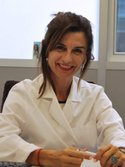
Ana María Sánchez-Pérez
Abscisic acid
Alzheimer’s disease
Degenerative disease
Inflammation and aging
Insulin receptor substrates
Nanoparticles
RNA therapies
Dr. Ana María Sánchez-Pérez joined the University of Jaume I (Castellon, Spain) in September 2012, where she is the principal investigator of the Neurobiotecnologia research group. The laboratory uses molecular, behavioral, cell biology, immunological, and biochemical techniques to study the impact of neuroinflammation in neurodegenerative and psychiatric diseases. Dr. Sanchez-Pérez’s research interests are in developing effective interventions to alleviate symptomatology associated with neuro-inflammation and brain neurotrophic factors resistance to significantly manage brain-mental health. Her group is currently engaged in the development of nanoparticles for the safe delivery of drugs, hormones, peptides, or nucleic acids to target specific organs. In addition, research interest also focuses on advancing the knowledge of plastic effects on human health and the generation of effective enzymes with plastic degradation ability to reduce plastic burden. She has over 50 peer-reviewed publications with 1700 citations. She serves as an associate editor for two journals and has been a guest associate editor for several other journals.
Dr. Arnold Spek is an Associate Professor at the Academisch Medisch Centrum Universiteit van Amsterdam, Center for Experimental and Molecular Medicine. His research interests focus on these areas: protease-activated receptors and macrophages in pulmonary fibrosis; protease-activated receptor 1 in cell fate decisions; C/EBPdelta: master regulator of pancreatic cancer progression; mesoporous silica nanoparticles as drug carriers in pancreatic cancer.
Prof. Aurel Popa-Wagner serves as the Chair of Vascular Neurology and Dementia at the Clinic of Neurology, Medical University, Essen, Germany. Old age is associated with an enhanced susceptibility to systemic vascular disorders like stroke and poor recovery from brain injuries. Therefore, the aim of Prof. Popa-Wagner’s group is to unravel cellular and molecular mechanisms underlying aging progression and its significance for brain diseases. His group has a long-standing interest in molecular mechanisms of brain remodelling in the aged rat brain. Recently Prof. Popa-Wagner became interested in systemic aging by aiming to model gene regulatory networks for regenerative processes after brain injury in aged animals. Another avenue of recent research is cellular therapy of stroke by using bone marrow-derive mesenchymal and mononuclear cells.
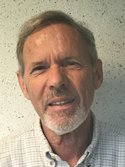
Bernhard Ryffel
Cachexia
Chronic progressive respiratory diseases
Cigarette smoke
COPD
Inflammation mechanism
Inflammatory responses
Innate immune danger sensing
Prof. Bernhard Ryffel received medical education in Bern and Geneva, obtaining an MD in 1978. Since 2001, he has been the director of research at CNRS Immunology, Orleans, France, with active research, and an advisor to several pharmaceutical companies. Prof. Bernhard Ryffel focuses on the following fields: 1) mechanisms of inflammation, especially respiratory inflammation, fibrosis, emphysema, and COPD, but also in skin, hepatic, intestinal, renal, and CNS inflammation. 2) innate immune danger sensing and cGAS/STING, ROS, and inflammasome activation in models of human inflammatory diseases and tumor development; the role of the microbiome and metabolome. 3) role of TNF and IL-1 family members in cell death and IL-33 and T2 and T17 polarization and differentiation. 4) translational research to evaluate new therapeutic targets for human chronic inflammatory disease.
Dr. Bjoern Petri has been the scientific director of the Mouse Phenomics Resource Laboratory since January 2011. He obtained his PhD (Dr. rer. nat.) in Immunology/Cell Biology and Genetics from the Westfalian Wilhelms-University and the Max-Planck-Institute for Molecular Biomedicine in Münster, Germany. He can look back on over 20 years of in vivo experience working with rodent models in the fields of physiology and immunology.
Between 2007 and 2010, he worked as a postdoctoral fellow (AHFMR/AIHS) at the Snyder Institute for Chronic Diseases, where he continued to strengthen his expertise in the field of immunology and its related research models and imaging techniques.
Professor Dr. Can Ince is a physiologist who heads the Department of Translational Physiology at the Academic Medical Center (AMC) of the University of Amsterdam. Together with his team, he conducts both experimental and clinical research directed at the cardiovascular aspects of perioperative medicine. Research topics include clinical microcirculation research in intensive care, cardiothoracic surgery, anesthesiology, blood transfusion, fluid resuscitation, sepsis, shock and resuscitation, acute renal failure, oxygen transport to tissue, and mitochondrial function. He is on the editorial boards of several journals. He has also authored close to 300 scientific, peer-reviewed papers.
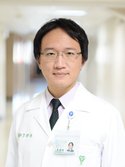
Chien-Feng Li
Cancer biology
Cancer cells
Cancer diagnostics
Immunohistochemistry
Metastasis
Oncogenes
Prognostic markers
Tumors
Dr. Chien-Feng Li is the Chair of the Department of Pathology at Chi Mei Medical Center, and he also serves as a professor at the Southern Taiwan University of Science and Technology as well as a joint-appointment associate investigator at the National Institute of Cancer Research (Taiwan). His current research interest is integrative analysis of genetic, epigenetic, and expression alternations during cancer progression and metastasis, with special emphasis on sarcomas and therapy-resistant cancers. With the opportunities to integrate large-scale clinical samples and advanced functional evaluations, he has been more focused on the potential therapeutic opportunities of oncogenic metabolic transformations and the mechanisms by which the metabolic characteristics of cancer implicate tumor progression.
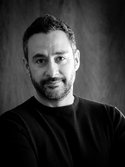
Daniele Tibullo
Biodiversity
Cancer biology
Clinical hematology
Flow cytometry
Hematologic diseases
Lymphoma
Marine biology
Osteoporosis
Dr. Daniele Tibullo is a professor in the Section of Biochemistry, Department of Biomedical and Biotechnological Sciences, University of Catania, 95123 Catania, Italy. He completed his Ph.D. in the Presso Division of Haematology, AOU "Policlinico-Vittorio Emanuele," University of Catania, Catania, Italy. He has broad research interests in cancer biology, lymphoma, biodiversity, marine biology, hematologic diseases, flow cytometry, clinical hematology, osteoporosis, cell proliferation, and cells. The research activity of Prof. Tibullo since the beginning of his career has focused on the role of heme oxygenase 1 and the mechanisms connected to iron metabolism and the interaction between tumor cells and immune cells. In his scientific production, he did studies on the metabolic consequences in response to treatments, and the mechanisms of resistance to therapy have particular importance, with particular reference to the metabolic fitness of solid and hematological tumors. The research activity of Prof. Tibullo was primarily focused on preclinical research in mouse and zebrafish models and in vitro research using human and mouse cell models. Among the most significant lines of research, studies on the antioxidant and anti-inflammatory role of alpha-lipoic acid have a prominent place. The studies led by Prof. Tibullo, in synergy with authoritative colleagues of international standing and foreign institutions, have implications of both a strictly biochemical type and of a translational and clinical nature. Prof. Tibullo developed his scientific interests in the metabolic processes involved in the transformation of the tumor microenvironment, studying mitochondrial trafficking phenomena between different cell populations and the role of lactate metabolism in terms of cellular energy expenditure and signal molecules, in order to determine a remodeling of the biochemical processes of tumor, stromal, and immune cells that make up the tumor microenvironment.
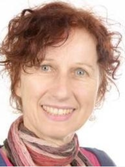
Eleonore Fröhlich
Apoptosis
Cancer biology
Cell culture
Immunocytochemistry
Microscopy
Nanoparticles
Pharmacy
Screening
Dr. Eleonore Fröhlich is a biochemist and Medical Doctor with a specialization in anatomy, histology, and embryology. Her current affiliations include the Medical University of Graz (Director of the Core Facility Imaging at the Center for Medical Research), the University of Tübingen (extraordinary professor at the Institute of Anatomy), and the Research Center Pharmaceutical Engineering (key researcher). Her research activities aim to link basic science and clinical research by using physiologically relevant 2D and 3D cell cultures and various cellular readout parameters. She is particularly interested in the assessment of the effects of inhaled pharmaceutical and environmental particles on the respiratory system. Her expertise is also present in thyroid diseases and cancer.
Prof. Enrico Mastrobattista is a full professor of Pharmaceutical Biotechnology and Delivery at the Department of Pharmaceutical Sciences at Utrecht University. Prof. Mastrobattista’s expertise lies in drug delivery, pharmaceutical biotechnology, and nanobiotechnology. He currently leads a research program to develop biomimetic drug delivery systems for the targeted delivery of proteins, peptides, and nucleic acids at the nanoscale. Prof. Mastrobattista has published over 120 scientific articles, contributed to several book chapters in pharmaceutical biotechnology, and holds several patents. He has received a Vici and Vidi grant and has been awarded the prestigious Prix Galien Research Award for his work on drug delivery.
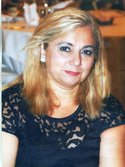
Eugenia Bezirtzoglou
Food and environmental microbiology
Gastrointestinal microflora
Human microbiota
Hygiene
Microbial ecology
Public health
Professor Eugenia Bezirtzoglou is a full Professor in Microbiology and Microbial Ecology at the Laboratory of Hygiene and Environmental Protection at Democritus University of Thrace. She was the Head of the Department of Agricultural Development and also the Director of 3 Laboratories. Her main fields of interest include microbial ecology, human microbiota, gastrointestinal microflora, food and environmental microbiology, hygiene, and public health. Her credentials include an h-index of 37, approximately 7000 citations, and she appears in the top 2% of Stanford University's list of world scientists for her importance and impact. She is a member of the Supreme Council of the Hellenic Authority for Higher Education. She has published over 200 international publications, 20 book chapters, and 3 books. She is often invited to participate in International Committees such as the ECDC enteric pathogens section, European evaluation programs, PhD thesis evaluations, and University and Institute certifications.
Dr. Eun Jeong Park is an associate professor at the Graduate School of Medicine, Mie University, Japan. Dr. Park is a researcher with diverse expertise in the field of biomedical science, particularly cancer biology and immunology. His research interests encompass the study of molecular mechanisms underlying cancer development, with a focus on signaling pathways and immune responses. Dr. Park’s current interest is to shed light on unknown mechanisms by which microRNAs and exosomes derived from different cellular sources regulate inflammations or cancers via interspecies and interkingdom communications. His research outputs include more than 70 publications in peer-reviewed journals, reflecting his impactful contributions to the field.
Felice Femiano, MD, DMD, Ph.D., is an associate professor in Dentistry (MED28) at the University of Campania "Luigi Vanvitelli" in Naples, Italy. From 1999 to 2008, he devoted himself to the study and research of patients with Burning Mouth Syndrome. Since 2005, he has dedicated himself to the study and research of the etiopathogenesis of oral pemphigous. Since 2010, he has dedicated himself to the study of dentinogenesis and the treatment of dentinal hypersensitivity. He has more than 150 publications. He collaborates on a national project about the diagnosis and prevention of oral cancer, directed by important research groups.
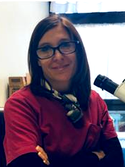
Francesca Oliviero
biomarkers in psoriatic arthritis
diet in rheumatic diseases
pathogenetic mechanisms in crystal-induced inflammation
synovial fluid analysis
the role of calcium crystals in osteoarthritis
Dr. Francesca Oliviero is an Associate Professor in Laboratory Medicine at the Department of Medicine, University of Padova, Italy. She received her Ph.D. in Rheumatology at the University of Padova, Italy in 2002, and obtained a specialization in Nutritional Science in 2006. She holds various teaching assignments at the School of Medicine, Laboratory Technicians, and School of Nurses. Dr. Oliviero’s main research interests lie in the area of Translational Rheumatology. Her expertise focuses on synovial fluid pathology, crystal-induced inflammation, osteoarthritis, including the role of nutritional components on the inflammatory process. Dr. Oliviero has published over 100 articles as an author or co-author in peer-reviewed journals, reviews, and book chapters.
Dr. Franz Zemp began his research training studying plant-pathogen interactions and epigenetics during his undergraduate (BSc, ’06) and graduate (MSc, ’08) degrees at the University of Lethbridge. It was followed by doctoral training (PhD, ’15) at the University of Calgary, where he studied neuroimmune responses to oncolytic virus treatment in brain cancer. He also completed two post-doctoral fellowships at the University of Calgary, studying mucosal immunology and tumor immunology, before being appointed as an adjunct assistant professor in the Department of Biochemistry and Molecular Biology at the University of Calgary. Dr. Zemp is also the Lead of the synthetic immunology arm of the Alberta Cellular Therapy Immunology (ACTION) Program.
His research interests focus on three main themes, including discovering novel immunotherapy targets for pediatric and AYA sarcomas, developing immunotherapies to target or co-target the tumor microenvironment, and utilizing oncolytic viral vectors as adjuvants for CAR T-cell therapy.
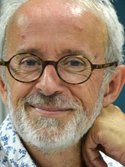
Frédéric Becq
Biochemistry
Cystic fibrosis
Electrophysiology
Human physiology
Patch clamp
Patch clamp recording
Patch-Clamp electrophysiology
Pharmacology
Stem cell biology
Dr. Frédéric Becq graduated from the University of Nantes and Toulouse III-Paul Sabatier University in France. Ph.D. in molecular and cellular nutrition at the University of Aix-Marseille, and several postdoctoral positions at McGill University, Montréal, Canada, and INSERM, Marseille, France. His research interests focus on ion channels, especially those regulating epithelial functions, with a strong focus on cystic fibrosis and CFTR chloride channels, and expertise in cell-based assay development, molecular biology, and genetics, as well as drafting corresponding technical and research documents. He has published over 130 scientific papers and several patents.
Dr. Freek Ariese is an Associate Professor, coordinator of the minor program in Biomedical Imaging, and Deputy Director of LaserlaB Amsterdam, a European Large-scale Research Institute. Nowadays, his main research activities are focused on Raman spectroscopy, with an emphasis on advanced Raman modes. The results have been disseminated through almost 200 peer-reviewed publications. He teaches various spectroscopy courses at the bachelor, master, and PhD levels. He is also involved in the management of a Europe-wide consortium of laser research centers. For several years, he was also a visiting scientist at the Indian Institute of Science in Bangalore, focusing on special applications of Raman spectroscopy. Current research activities are focused on advanced Raman spectroscopy for extra sensitivity, selectivity, or speed. Applications can be pre-clinical, environmental, space, cultural heritage, or material science. A deep-UV Raman setup was developed to improve plastic waste sorting in a recycling factory.
Dr. Gal Shafirstein is a member and professor of Oncology in the Department of Cell Stress Biology and the Director of Photodynamic Therapy (PDT) Clinical Research at Roswell Park Cancer Institute. He is a materials scientist focusing on the development of laser and thermal ablation devices and techniques for the treatment of cancerous tumors. Working in Roswell Park's PDT Center, Dr. Shafirstein's goal is to expand the use and enhance the translation of PDT. His research team invented and created real-time light dosimetry and treatment planning systems for PDT, which support three clinical studies at the PDT Center. He is also the co-leader of the clinical project of the PDT-PPG and serves as Director of the PDT Clinical Research Team, providing support for all light-base diagnostic and treatment protocols at Roswell Park.
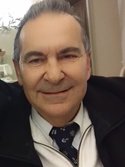
George G. Koliakos
Aging
Rejuvenation mechanisms
Stem cell differentiation
Stem cell-extracellular matrix interactions
Prof. George Koliakos is a faculty member of the Medical School at Aristotle University, currently serving as a full professor of biochemistry (since 2012). He is the President of the Hellenic Society for the Study of Regenerative Medicine. Dr. Koliakos has collaborated for the last 30 years with clinical departments of Aristotle University, including the Departments of Internal Medicine, in research considering metabolic syndrome, oxidative stress, atherosclerosis, and hypertension. His collaboration with the Department of Ophthalmology focused on exfoliation syndrome, the most common cause of blindness among senior citizens. The collaboration with the Department of Surgery focused on wound healing. His current research interests include stem cell differentiation, stem cell-extracellular matrix interactions, and aging and rejuvenation mechanisms. Dr. George Koliakos has co-authored 194 peer-reviewed papers in PubMed and Scopus, with a total of 5635 citations and a current Hills Index of 39 (Google Scholar).
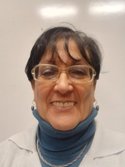
Giuliana Muzio
Biocompatibility of materials for medical devices
Cancer biology
Cancer resistance
Lipid aldehydes
Lipid peroxidation
Osseointegration of dental implants
Oxidative stress
PPARs
Tissue regenerations
Prof. Giuliana Muzio is from the Department of Clinical and Biological Science, University of Turin, 10125 Turin, Italy. She is actively engaged in scientific research in the fields of oncology and tissue regeneration. In the field of oncology, her research focuses on the role of acids, lipid peroxidation, and lipid peroxidation products in cancer development and progression. In the field of tissue regeneration, her research focuses on the evaluation of the biocompatibility and ability of new biomimetic materials to stimulate bone formation, the determination of the biological factors involved in osteogenesis in dental implantology, and the effect of super-pulsed laser radiation and shock waves in stimulating osteogenesis. The results of the research activity of Prof. Muzio have been the subject of 101 full-length publications in peer-reviewed international journals and 120 meeting communications. Moreover, she has been the author of 21 chapters in national and international books and the editor of scientific books.
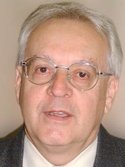
Giulio Gabbiani
Cancer biology
Connective tissue
Fibromatoses
Fibrosis
Immunohistochemistry
Myofibroblast
Wound healing
Dr. Giulio Gabbiani obtained an MD degree in 1961 at the University of Pavia (Italy) and a PhD degree in 1965 at the University of Montreal (Canada). He has been an assistant professor at the Department of Pathology and Immunology of the University of Geneva (Switzerland) and then a professor in the same department, where he is now an emeritus professor. The scientific interests of Dr. Gabbiani include soft tissue remodeling during development and pathological situations, such as wound healing and organ fibrosis, as well as arterial smooth muscle adaptation during development and diseases, e.g., atheroma formation and restenosis. Cell modulation during these phenomena has been studied using cytoskeletal markers, in particular actin isoform expression. Dr. Gabbiani has been Secretary and President of the European Cytoskeleton Forum, Secretary and Chairman of the European Vascular Biology Association, and Secretary of the European Tissue Repair Society.
Therapeutics at Sapienza University of Rome, Italy. His scientific focus is on the role of gliosis and neuroinflammatory processes in the central and enteric nervous systems. He is also involved in characterizing the role of gut microbiota-glia-neuron interplay during neuropathological disorders to provide more efficient pharmacological approaches to neurodegenerative diseases acting through the so-called gut-brain axis. Prof. Esposito is the author of almost 100 articles published in international peer-reviewed journals and is a member and co-founder of NEXTBIOMICS SRL. This spin-off operates in the field of microbiota engineering. Professor Esposito has been recently nominated as the President of the Scientific Committee of the Educational Society of Precision Medicine (SIEMPRE). Prof. Esposito is a permanent member of the editorial board of international peer-reviewed pharmacology journals, such as Phytotherapy Research, and an associate editor for Frontiers in Pharmacology (gastrointestinal session).
Prof. Guillermo Aguilar received his Bachelor's degree in Mechanical and Electrical Engineering from the National Autonomous University of Mexico (UNAM) in 1993 and his Master's and Doctor of Philosophy degrees in Mechanical Engineering from the University of California, Santa Barbara, in 1995 and 1999, respectively. His research interests include biological tissue thermal management/cryogenic spray cooling, biomedical optics/biomaterials development and characterization, non-invasive optical imaging, medical laser applications/laser-tissue rewarming, and optical-induced cavitation/controlled surface erosion/mitigation.
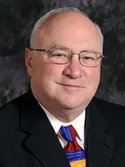
Guillermo Herrera
Amyloidosis
Immunoiglobulin light chain and the kidneyx
Renal pathology
Ultrastructure
Prof. Guillermo Herrera now serves as the Chair and Professor in the Pathology Department at the University of South Alabama, Whiddon College of Medicine in Mobile, Alabama. Dr. Herrera has held similar positions at two other institutions: Saint Louis University in St. Louis, Missouri, and Louisiana State University in Shreveport, Louisiana. His work has always bridged basic science and patient care with a fundamental translational approach. Dr. Herrera is specialized and passionate about renal pathology, with a focus on kidney injury produced by monoclonal light or heavy chains. He has extensively published on the pathophysiology of renal injury caused by monoclonal proteins in various renal compartments. He has also been engaged in serious clinical work as a nephropathologist and has developed outreach programs at various institutions, which have helped fund his research work.
Dr. Hans Deckmyn is from the Department of Chemistry at KU Leuven, Belgium. One of the main research themes of the group led by Prof. Deckmyn was the study of the interaction between platelet glycoprotein Ib and von Willebrand factor (VWF), which forms the bridge between collagen in the damaged vessel wall and platelets. Prof. Hans Deckmyn is the author or coauthor of over 260 papers in international peer-reviewed journals, 14 chapters in books, and four patents.
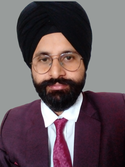
Hardeep Singh Tuli
Biotechnology
Cancer biology
Cell culture
Cell signaling
Flow cytometry
Gene expression
Dr. Hardeep Singh Tuli is an Associate Professor in the Department of Biotechnology, Maharishi Markandeshwar (Deemed to be University), Mullana-Ambala, Haryana 133207, India (2015–present). He completed his PhD at Maharishi Markandeshwar (deemed-to-be-university) in 2015. He has broad research interests in cancer biology, biotechnology, cell culture, cell signaling, flow cytometry, gene expression, western blot analysis, immunohistochemistry, molecular cell biology, and PCR. As a peer reviewer, he has helped many journals review a lot of manuscripts.
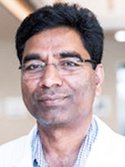
Hariprasad Vankayalapati
Autoimmune disorders
Breast cancer
DNA methylation
Glioblastoma Multiforme (GBM)
High Throughput Screening
Kinases
Neurodegenerative diseases
Ovarian cancer
Pancreatic cancer
Synthesis
Dr. Hariprasad Vankayalapati is a co-founder and currently serves as Chief Scientific Officer of Biolexis Therapeutics, Inc., a clinical-stage biopharmaceutical company that discovers and develops novel first-in-class small-molecule targeted therapeutics for cancer, immune-mediated, auto-immune, inflammatory, and metabolic diseases. He developed the empirical-driven MolecuLern technology implemented with experimental data in ML/LLM algorithms and successfully discovered novel agents in the clinical stage of development. Dr. Vankayalapati is the author of more than 100 publications and presentations, and he is the inventor of several issued or published US and WO patents.
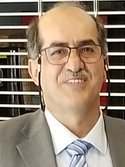
Hassan Marzban
Cerebellar circuit formation
Cerebellar gene expression pattern
Cerebellar neurodegeneration pattern
Genetic regulation in cerebellar development
Neurogensis/axonogensis
Neuronal migration
White matter degeneration
Dr. Hassan Marzban is a renowned cerebellar developmental biologist and professor at the University of Manitoba. He joined the University of Manitoba in 2010. Since then, he has dedicated his research to uncovering the mysteries of the cerebellum, a critical part of the brain responsible for motor control and cognitive functions. His research program focuses on elucidating the mechanisms that underlie neurodevelopmental disorders and will positively impact human well-being by advancing the identification and development of (therapeutic) approaches to prevent birth defects and promote health in affected individuals. He also investigates how cerebellar nuclei regulate the cerebellar neural circuits that emerge from homogenous cell populations and which cellular and molecular mechanisms modulate these connectivity patterns during cerebellar development in health and diseases that cause progressive damage to the nervous system.
Dr. Jingjing Zhang is a researcher at the State Key Laboratory of Analytical Chemistry for Life Science, School of Chemistry and Chemical Engineering, Chemistry and Biomedicine Innovation Center (ChemBIC), Nanjing University, Nanjing 210023, China. He received a PhD degree in analytical chemistry from Nanjing University in 2010. His thesis project was to explore the use of functionalized carbon nanotubes in cytosensing and apoptosis diagnosis (in Jun-jie Zhu’s laboratory). After two years of postdoctoral research at Nanjing University, he moved to Prof. Yi Lu's group at the University of Illinois at Urbana-Champaign as a postdoctoral research associate and got more interested in the fundamental understanding of aptamers and their applications in medical diagnostics. Dr. Zhang started his independent career in the School of Chemistry and Chemical Engineering at Nanjing University in 2019. He has broad research interests in CRISPR-based diagnostics of infectious diseases, aptamer-based biosensors, and new proteolysis-targeting chimeras. Dr. Zhang has published more than 60 SCI papers and authored two United States patents related to chemistry, materials, and biology.
Dr. Jiong-Wei Wang is an assistant professor in July 2019 at the National University of Singapore. Besides the Department of Surgery, he holds a joint appointment at the Department of Physiology for teaching. He is a principal investigator at the Cardiovascular Research Institute (CVRI; National University Heart Centre Singapore) and the Nanomedicine Translational Research Program (Yong Loo Lin School of Medicine). His research has been supported by the National Medical Research Council (NMRC), the Ministry of Education (MOE), and NUS/NUHS, among others. He was awarded three times the "Young Investigator Award" by the International Society on Thrombosis and Haemostasis (ISTH), twice travel awards by the European Society of Cardiology (ESC), the Outstanding Mentor Award in 2019 by the Wong Hock Boon Society-Singapore Medical Association (SMA) Charity Fund (WHBS-SMACF), and the Young Researcher of the Year Award for 2023.
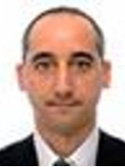
Joaquim Carreras
Hematopathology
Histopathology
Immune microenvironment
Immuno-oncology
Molecular pathology
Dr. Joaquim Carreras is a pathologist with a medical degree from the University of Barcelona, Spain. He is a specialist in Pathology at the Hospital Clinic of Barcelona, Spanish Ministry of Health. He obtained his PhD in hematopathology from the Department of Pathology, Faculty of Medicine, University of Barcelona. He has worked as a pathologist in Spain and as a medical research associate at the University of Cambridge (UK) and AIST Tsukuba Central (Biomedical Research Institute). He currently works at Tokai University School of Medicine, Japan.
Prof. Joshua A. Jackman is an assistant professor in the School of Chemical Engineering and Biomedical Institute for Convergence at Sungkyunkwan University (SKKU) in South Korea. He is also the director of the translational nanobioscience research center at SKKU.
Prof. Khawaja Husnain Haider is currently working as a full professor and chairman of Basic Sciences at Sulaiman Al-Rajhi University (Medical Program), Saudi Arabia. Prof. Haider has published four books, more than 275 research papers, book chapters, and conference abstracts. His current interest, based on his extensive research experience in stem cells and gene therapy, either alone or as a combined approach, is to use stem cells and DNA as drugs in regenerative medicine.
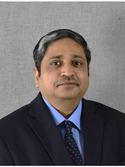
Kota V. Ramana
Carcinogenesis
Inflammatory complications
Oxidative stress-induced signal transduction mechanisms
Pathophysiology of secondary diabetic complications
Dr. Kota Ramana is a professor at the Department of Biomedical Sciences, Noorda College of Osteopathic Medicine, Provo, Utah, USA. He is also an adjunct professor at Roseman University of Health Sciences. He received a Ph.D. in biochemistry from the Postgraduate Institute of Medical Education and Research, India. The chief objectives of his lab investigations are to examine the involvement of cellular metabolism and oxidative stress signals in inflammation. His lab uses various genetic, biochemical, and cell biological approaches to analyze inflammatory responses regulated by cellular lipid metabolites leading to secondary diabetic complications and cancer. He has published more than 130 peer-reviewed articles and 12 book chapters.
Dr. Luis Martinez-Sobrido is a Professor at the Texas Biomedical Research Institute, an Adjunct Professor at the Department of Microbiology, Immunology, and Molecular Genetics (MIMG) at the University of Texas Health Science Center San Antonio (UT-Health SA), and an Adjunct Professor at the Department of Microbiology at the University of Texas San Antonio (USTA). His Ph.D. research focused on the study of viral replication and transcription of respiratory syncytial virus under the guidance of Dr. Jose Antonio Melero at the Instituto de Salud Carlos III in Madrid, Spain. He conducted post-doctoral research on the molecular biology of influenza viruses under the supervision of Dr. Adolfo Garcia-Sastre at the Icahn School of Medicine at Mount Sinai in New York, USA. Dr. Martinez-Sobrido’s research interest during the last 20 years has been focused on the molecular biology, immunology, and pathogenesis of negative-stranded and positive-stranded RNA and DNA viruses. His current research interest focuses on the molecular biology of RNA viruses. Dr. Martinez-Sobrido has extensive knowledge of plasmid-based reverse genetics techniques to rescue recombinant viruses, pioneered the development of techniques and screening assays to identify and characterize viral-encoded interferon antagonist proteins, and established new molecular biology techniques to study highly pathogenic viruses without the requirement of special biosafety conditions. His expertise also includes antiviral and vaccine development and the establishment of animal models of viral infections.
After his postdoctoral research at other institutes, including the University of California at Berkeley, Dr. Maarten Bijlsma returned to the Academic Medical Center as a junior group leader. He is currently an assistant professor. His research focuses on pancreatic and esophageal cancer, from the most fundamental mechanisms that underlie aberrant signaling in these diseases to the development of serum-borne markers in patient cohorts to predict treatment response and disease outcome. Furthermore, he was the Biomarker/Imaging Program leader for the Amsterdam UMC Cancer Center during the first three years of its existence.
Prof. Makoto Noda studied organic chemistry, microbial genetics, and molecular biology at Keio University and Tokyo Institute of Technology, Japan. His Ph.D. study was to clone a primate retroviral (baboon endogenous virus) genome into bacteriophage and to use its fragments to isolate retrovirus-related sequences in the human genome, elements still hypothetical at that time. His postdoctoral study at the National Cancer Institute, USA, led to the first demonstration of functional diversity among oncogenes. His subsequent studies (at Keio University, RIKEN, the Japanese Foundation for Cancer Research, and Kyoto University) include the discovery of a paradoxical activity of RAS to induce neuronal differentiation in PC12 cells, the isolation of Rap1 and RECK as transformation suppressor genes, the isolation of a series of genes whose expression is abundant in mouse neural precursor cells but low in mature brains (termed Nedd genes), the elucidation of physiological functions of some of these genes using cell culture and mouse genetics, and the development of functional assays that are useful for screening potential anti-cancer and metastatic drugs.
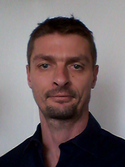
Marc Maresca
Antimicrobial
Antimicrobial Peptides
Intestin
Intestinal physiology
Mycotoxins
Pathogenic micro-organisms
Toxins
Dr. Marc Maresca is an assistant professor at the Institute of Molecular Sciences of Marseille (ISM2, UMR-CNRS 7313). Research conducted in this multidisciplinary institute aims to integrate various techniques, including chemistry, biochemistry, cell biology, molecular biology, and microbiology, to elucidate biological mechanisms in both eukaryotic and prokaryotic systems and discover new therapeutic agents. He specializes in food safety and food toxicology, and utilizes in vitro and ex vivo approaches to identify and characterize new therapeutic molecules in terms of their activity, safety, and mechanism of action. He has authored 93 papers in international peer-reviewed journals.
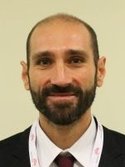
Marcello Iriti
Nutrition
Antimicrobial resistance
Bioactive phytochemicals
Essential oils
Ethnopharmacology
One health
Prof. Marcello Iriti is a professor of Pharmaceutical Biology at the Department of Biomedical, Surgical, and Dental Sciences at Milan State University. He has been studying nutraceuticals, functional foods, phytotherapeutics, and essential oils relevant to human and animal health, focusing on their preclinical (in vitro/in vivo) and human pharmacological activities. He has been investigating the health-promoting effects of the traditional Mediterranean diet and the ethnopharmacology of herbal remedies in traditional healing systems.
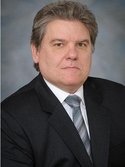
Marcelo Aldaz
Breast cancer genetics
Breast cancer mouse models
Hormonal carcinogenesis
Tumor suppressor gene (WWOX)
Prof. Dr. Marcelo Aldaz is in the Department of Epigenetics and Molecular Carcinogenesis at the University of Texas MD Anderson Cancer Center, Houston, TX, USA. Dr. Aldaz has a long-standing interest in human genetics and cancer genomics. Over the years, he has mostly focused on identifying and elucidating the role of key abnormalities that affect the genome of normal and premalignant cells toward cancer development and evolution. His laboratory has published extensively on WWOX’s role in multiple diseases, from cancer and metabolic conditions to CNS pathology. The lab has generated various molecular biology tools and reagents, including valuable genetically engineered mouse models to analyze the effects of targeted Wwox ablation in tissues of relevance and knock-in mutations, not only to understand the role of WWOX in cancer but now in rapidly emerging new fields of various pathologies associated with WWOX. They currently aim to understand how WWOX loss-of-function is mechanistically related to disruption of excitatory and inhibitory neuronal homeostasis in the neocortex and cerebellum.
Dr. Marco Fiore is a researcher at the Institute of Biochemistry and Cell Biology of the Italian National Research Council, IBBC-CNR, in Rome, Italy. He studied natural sciences and biological sciences at the Sapienza University of Rome, Italy. He got his Ph.D. in Medical Sciences at the Psychiatric Department of the University of Groningen, The Netherlands. In addition, he also potentiated his professional experience at the Institute of Zoology, Oxford University, UK, and the Department of Physiology and Behavior, University of California at Davis, California, USA, with broad research interests in oxidative stress, neurobiology, toxicology, and addiction.
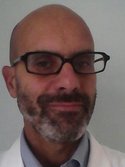
Marco Zaffanello
child health
Nephrology
pediatric nephrology
Obesity
physical activity
sleep medicine
Urinary tract infections
Marco Zaffanello, MD, is an associate professor of Pediatrics in the Department of Surgery, Dentistry, Pediatrics, and Gynecology at the University of Verona, Italy. He graduated with a degree in Biological Sciences in 1989 and a degree in Medicine and Surgery in 1997. He specialized in Pediatrics in 2001. Throughout his scientific career, he has been involved in research on inherited metabolic diseases and pediatric nephrology. His leading research focuses on sleep-disordered breathing and sleep apnea syndrome in children. With broad research interests in pediatric nephrology, obesity, physical activity, child health, urinary tract infections, nephrology, sleep medicine, and sleep apnea, he has published many full articles and reviews in peer-reviewed journals. He has collaborated with various research groups, including Bambino Gesù Children's Hospital (Rome, Italy), University of Catania (Catania, Italy), Mayo Clinic and Foundation in Rochester (Minnesota, USA), UZ Leuven University Hospital (Belgium), University of Leuven and Flanders (Belgium), University of Cagliari (Italy), Kapodistrian University (Athens, Greece), Department of Pathology at KU Leuven (Belgium), University of California (USA), Università dell'Insubria (Italy), National Research Council (Palermo, Italy), and Carlo Poma Hospital (Mantua, Italy). He has also served as a speaker at national and international conferences. He has been a lecturer at the University of Verona for the Nursing Science degree program and the Obstetrics and Pediatric specialization programs.
Dr. Marco G. Alves obtained his PhD in Biochemistry, specializing in bioenergetics, from the University of Coimbra (Portugal) in 2011. Leading a dedicated research group in endocrinology, metabolism, and male reproduction, he focuses on various aspects of male reproductive biology, metabolic modulation, obesity, and the physio-pathological factors influencing subfertility or infertility. Dr. Alves is particularly engaged in investigating metabolic cooperation in spermatogenesis, metabolic-related infertility, especially infertility with links to diabetes and obesity, and the underlying mechanisms driving these phenomena. Since 2015, he has been actively supervising numerous PhD students and post-doctoral researchers. His outstanding research contributions have earned him multiple national and international prizes and grants, including prestigious competitive international funds.
Dr. Martin Hagedorn is a biomedical expert in Biology & Biochemistry and Molecular Biology & Genetics. Since September 2014, Dr. Martin Hagedorn has been leading a team of researchers (Caroline CAPDEVIELLE, Farah RAHAL, Justine CHARPENTIER, and Mélissa MENARD) that has devoted its research work to the identification of new therapeutic targets in brainstem tumors and the improvement of its treatment methods, whose work has been recognized by several European scientific teams and experts. In addition, the project led by Farah Rahal, under the leadership of Dr. Martin Hagedorn, aims to improve the treatment of children with brainstem tumors.
Dr. Martin Hermann was working with the Department of Anesthesiology and Critical Care Medicine at Innsbruck Medical University, Innsbruck, Austria. His research interests focus on anatomy, endocrinology, and anesthesiology.
Dr. Matteo Cerri is an associate professor of Physiology (M.D., Ph.D.) at the Department of Biomedical and Neuromotor Sciences of the University of Bologna, Italy. His research focuses on hibernation and methods to induce a state resembling hibernation in non-hibernators, including humans. Currently, he is consulting for the European Space Agency and the Italian Space Agency. He is also a member of the National Institute for Nuclear Physics and the Italian Institute of Technology.
Dr. Matthias Ocker is a faculty member and adjunct professor of experimental medicine at Charité University Medicine in Berlin, Germany. Dr. Ocker brings more than 20 years of academic and industry experience in oncology and GI diseases to Bayer and Boehringer Ingelheim. He held global senior positions in early drug development, with a strong focus on biomarkers, translational medicine, and clinical pharmacology. Dr. Ocker has led several programs into Phase 1 and proof-of-concept and was a member of global portfolio steering committees. He has authored more than 130 scientific publications and book chapters and is a member of several academic societies, like AACR and EASL.
Dr. Maurice van den Hoff currently works at the Department of Medical Biology, Amsterdam University Medical Centers. Maurice does research in cell biology, developmental biology, and molecular biology. Current projects are "3D human embryology", "quantitative PCR", and "role of follistatin-like 1 in development and disease".
Prof. Michael.R. Hamblin (Ph.D.) was the principal investigator at the Wellman Center for Photomedicine at Massachusetts General Hospital, an associate professor of Dermatology at Harvard Medical School, and a member of the affiliated faculty of the Harvard-MIT Division of Health Science and Technology. His research interests lie in the areas of photodynamic therapy (PDT) for infections, cancer, and heart disease and photobiomodulation for wound healing, arthritis, traumatic brain injury, and hair regrowth. He has published over 600 peer-reviewed articles, over 150 conference proceedings, book chapters, and international abstracts, and holds eight patents. He is an Associate Editor for ten journals, on the editorial board of 25 journals, and serves on NIH Study Sections.
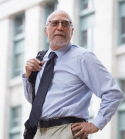
Michael Retsky
Biophysics
Breast cancer
Cancer
Computational biophysics
Computational physics
Metastasis
Tumors
Dr. Michael Retsky made a career change to cancer research thirty years ago. He is on staff at the Harvard TH Chan School of Public Health and the Angiogenesis Foundation, both in Boston. He is also on the faculty at University College London. He was on Judah Folkman’s staff at Harvard Medical School for 12 years. He received a Ph.D. in experimental physics from the University of Chicago in 1974. His thesis project was to build a scanning transmission electron microscope that could resolve single atoms of silver, mercury, and uranium and measure their elastic cross-sections (in Albert Crewe’s laboratory). While doing electron optics research at Hewlett-Packard in 1982, a friend’s wife was diagnosed with cancer. This friend organized an informal research group to study cancer and possibly help his wife. He got more interested in cancer research than physics research and gradually made a career change over a period of five years. He read every paper he could find at Penrose Cancer Hospital. With broad research interests in medical and surgical emergencies in computational biophysics, metastasis, tumors, computational physics, biophysics, cancer, breast cancer screening, and colon cancer, he is a founder and on the Board of Directors of the Colon Cancer Alliance. He has published more than 60 papers in physics and cancer.
Prof. Mustafa Z. Younis is an internationally recognized scholar and a tenured professor at Jackson State University, Mississippi, USA. In addition, Prof. Younis is a Visiting Distinguished Professor at Universiti Putra Malaysia. Prof. Younis served as a member of the Executive Committee of the International Society for Research of Healthcare Financial Management. Prof. Younis has authored and published over 100 articles, 150 abstracts, and presentations in refereed journals, meetings, and universities in Europe, China, and the Middle East. He has presented at national and international conferences. Prof. Younis has consulted with several organisations on healthcare finance and economics.
Dr. Nicanor Moldovan is an associate research professor at IUPUI and the founding director of the 3D Bioprinting Core at Indiana University School of Medicine. After post-doctoral training in cardiovascular medicine at Johns Hopkins University, he performed extensive biomedical engineering research at the Ohio State University in Columbus, Ohio. Among other NIH and AHA funding, he received an RC2 ARRA stimulus grant on the interaction of circulating vascular progenitor cells with polymeric microfibrils. Dr. Moldovan is the founding director of the 3D Bioprinting Core at IUSM/IUPUI, equipped with the state-of-the-art 'Regenova' bioprinter and the automatic fluorescence microscope 'IncuCyte ZOOM'. To cover the bioprinter's costs, he won a large NIH S10/Shared Instrument Grant award, on which he is the principal investigator. He is also an associate editor of the Journal of Cellular and Molecular Medicine.
Dr. Nienke Vrisekoop is an associate professor at the Center of Translational Immunology at UMCU. Nienke Vrisekoop's core research interest is immune cell dynamics in health and disease. In 2013, she started as an assistant professor at the Department of Respiratory Medicine in the Center of Translational Immunology at the UMCU, where she studies neutrophils, which are the first responders to the immune system. These immune cells can recognize and engulf both microorganisms and foreign matter, such as microplastics that penetrate the body. She now focuses in her laboratory on the mechanisms that neutrophils employ to deal with these threats.
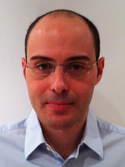
Oscar Campuzano
Cardiomyopathies
Genetics
Inherited arrhythmias
Molecular autopsy
Sudden cardiac death
Dr. Oscar Campuzano graduated in Biology (Biosciences) from the University of Barcelona (Spain) in 2002. He obtained his PhD from the Autonomous University of Barcelona (Spain) in 2008. Later, he joined as a postdoctoral fellow at the Cardiovascular Genetics Center of the University of Montreal (Canada). In 2010, he returned to Spain, where he obtained a senior researcher position at the Center for Cardiovascular Genetics and a professorship at the Faculty of Medicine (University of Girona). Dr. Campuzano has published more than 150 peer-reviewed articles and several book chapters. He has also been the principal investigator for more than ten projects. Currently, Dr. Campuzano is dedicated to basic and clinical research on pathologies associated with sudden cardiac death, allowing the results of basic research to be transferred to clinical practice.
Dr. Panagiotis J. Vlachostergios is an assistant professor in the Department of Medicine, Division of Hematology and Medical Oncology, Weill Medical College of Cornell University, New York, NY, USA. He received his Ph.D. in Cancer Biology in 2013. He completed his Internal Medicine Residency at the New York University School of Medicine, Langone Hospital. He also completed his Hematology and Medical Oncology Clinical Fellowship at Weill Cornell Medical College, New York Presbyterian Hospital. He has further completed post-doctoral training in Genomic Cancer Risk Assessment (City of Hope Comprehensive Cancer Center); Genetics and Genomics (Stanford University); Genetics, Cancer Genomics and Precision Oncology (Harvard Medical School); Immunology and Immuno-Oncology (Harvard Medical School); and Clinical Research (Weill Cornell Clinical and Translational Science Center). With broad research interests in medical and surgical emergencies in cell culture, cell signaling, cancer biology, apoptosis, public health, article writing, PCR, immunohistochemistry, flow cytometry, and gene expression, he has published more than 100 international peer-reviewed articles and authored several book chapters and abstracts. His research has been highly cited. He is a recipient of prestigious awards from the American Society of Clinical Oncology, the European Society of Medical Oncology, the Society for Translational Oncology, the American Federation for Medical Research, the Bladder Cancer Advocacy Network, and others. He serves as an investigator on CDMRP-funded and industry-sponsored clinical studies.
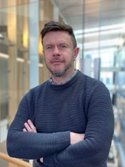
Paul R. Cooper
Dental phototherapy
Dental tissue engineering
Host-pathogen
Interactions in dental disease
Pulp biology
Prof. Paul R. Cooper currently conducts research in dental tissue regeneration, the inflammatory and immune aspects of oral and dental disease, and the biomaterials area, with a focus on pulp biology. In 2010, he received the Young Investigator Award from the International Association for Dental Research (IADR). He has served as Chair of the Mineralized Tissue Group (MINTIG) and a councilor for the British Society for Oral and Dental Research (BSODR). He has been the President of the Pulp Biology and Regeneration Group (PBRG) of IADR and is the incoming President of IADR-ANZ. Prof. Cooper has been the Deputy Head of the School of Dentistry at the University of Birmingham, UK, and is currently (July 2022) the Dean of the Faculty of Dentistry, University of Otago, NZ. He serves on the editorial board of several dental journals.
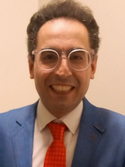
Payam Behzadi
Antibiotics
Bioinformatics
Molecular biology
Toll-Like receptors
Urinary tract infections
Dr. Payam Behzadi began his collaboration with the Department of Microbiology, College of Basic Sciences, Shahr-e-Quds Branch, Islamic Azad University, as a faculty member in 2004. He has a BSc and MSc in Microbiology and a Ph.D. in Molecular Biology and now continues his scientific activities in the position of assistant professor at Islamic Azad University, Iran. With his expertise in molecular biology, bioinformatics, urinary tract infections, antibiotics, toll-like receptors, Escherichia coli, Pseudomonas aeruginosa, Helicobacter pylori, infectious diseases, and molecular techniques, he has authored and edited more than 25 chapters and academic books and more than 95 original and review articles. His scientific research interests include urinary tract infections, infectious diseases, molecular biology, bioinformatics, and cellular and molecular immunology.

Peichen Pan
Cancer biology
Glioma
Molecular docking
Molecular dynamics
Molecular modeling
Virtual screening
Dr. Peichen Pan has been, since 2021, a Distinguished Research Professor at the Innovation Institute for Artificial Intelligence in Medicine at Zhejiang University's College of Pharmaceutical Sciences, located in Hangzhou, Zhejiang, China. He obtained his Doctor of Philosophy (Ph.D.) in Medicinal Chemistry from Zhejiang University's College of Pharmaceutical Sciences, China, between 2014 and 2019. Previously, he held the position of Research Fellow at the Department of Cancer Biology at Harvard Medical School and the Dana-Farber Cancer Institute in the United States from 2019 to 2021.
Dr. Pan's primary interests involve the development and application of state-of-the-art computational and theoretical techniques. His research focuses on investigating the structures, functions, and dynamics of important drug targets. He also employs computational approaches and chemical and biological experiments to design potential new drugs. He has published over 50 articles in peer-reviewed journals, including Nature Communications, Science Advances, ACS Central Science, Chemical Science, the Journal of Medicinal Chemistry, Research, Drug Discovery Today, Antiviral Research, and the Journal of Chemical Information and Modeling.
Dr. Peter Makovický graduated from the Slovak University of Economics in Nitra. From 2005 to 2008, he worked at the Institute of Pathology FN in Nitra. Since 2008, he has been a professional assistant at the Department of Veterinary Disciplines at the Czech University of Agriculture in Prague.
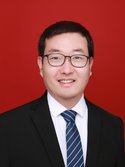
Pingping Zhu
Colorectal cancer
CRISPR/Cas9 screening
Image based screening
Liver cancer
Stem cells
Wnt/β-Catenin Signaling
Prof. Dr. Pingping Zhu has been engaged in research on the regulatory mechanism of stem cells, including adult stem cells (ASCs), in physiological conditions at Zhengzhou University. Since his Ph.D., Zhu Pingping has been engaged in research on the regulatory mechanism of stem cells, including adult stem cells (ASCs) in physiological conditions (such as intestinal stem cells, ISCs) and cancer stem cells (CSCs) in pathological conditions (such as intestinal CSCs and liver CSCs). The regulatory mechanisms include epigenetic regulation (such as non-coding RNAs, chromatin remodeling complexes, and DNA modifications), transcriptional regulation, and microenvironmental regulation.
Dr. Piter Bosma is an Associate Professor at AGEM, Amsterdam Gastroenterology Endocrinology Metabolism. His main focus is to develop adeno-associated liver-directed gene therapy to treat inherited unconjugated hyperbilirubinemia. The research is funded by the Dutch Najjar Foundation and by ZonMw. In collaboration with the group of Prof. Dr. Labrunne and the AFM, they plan to start a phase 1 trial by the end of 2016 or at the start of 2017. Successful application of AAV to these patients will also enable them to use this strategy to treat other inherited liver diseases, such as PFIC.
Prof. Dr. Rainer Böger has specialized in clinical pharmacology, pharmacology, and toxicology. He is the director of the Institute of Clinical Pharmacology and Toxicology at the University Medical Center Hamburg-Eppendorf. His major research interest is focused on translational research to better understand mechanisms of chronic human diseases, with efforts to develop novel approaches for prevention and therapy; these comprise studies in cardiovascular disease, diabetes, chronic lung diseases, and inflammation. His activities span molecular and biochemical studies, genetically modified animal models, and human proof-of-concept studies. Developing biomarkers to better discriminate between high- and low-risk individuals is a core activity of his team.
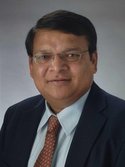
Rakesh Srivastava
Immunology
Autophagy
Biomarker development
Cancer therapy
Diabetes
Drug discovery and development
Liver cancer
Nano-technology
Pancreatic cancer
Stem cells
Dr. Rakesh Srivastava is a leader in the fields of oncology, diabetes, nutrition, obesity, regenerative medicine, neurology, and infectious diseases. He received his education in Canada and was trained at the US National Institutes of Health. He is a fellow of the US National Academy of Sciences, the British Royal Society of Medicine, and the Royal Society for Public Health. He has published hundreds of scientific papers and presented his research findings at numerous national and international conferences. He has edited five books and written numerous book chapters.
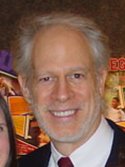
Ralph Joseph DiClemente
Immunology
Psychology
Community interventions
Development of HIV and STD prevention programs
Diabetes
Implementation science
Infectious disease
Influenza
Dr. Ralph Joseph DiClemente is a professor in the Departments of Social and Behavioral Sciences and Epidemiology at the New York University School of Global Public Health. Dr. DiClemente was a member of the NIH Office of AIDS Research Advisory Council, the CDC Board of Scientific Counselors, and the NIMH National Advisory Council. Dr. DiClemente’s research has been focused on developing interventions to reduce the risk of fetal alcohol spectrum disorder among vulnerable pregnant women, developing interventions to enhance vaccine uptake among high-risk adolescents and women, and developing implementation science interventions to improve the uptake, adoption, and sustainability of prevention programs in the community. He has published extensively, authoring over 650 peer-reviewed publications and writing or editing 20 books on HIV prevention, community-based research, research methods, adolescent health, and global health promotion.
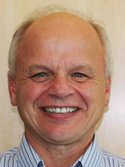
Richard Sayre
Drug delivery systems including extracellular vesicles
Malnutrition
Oral vaccines
RNA and protein therapeutics
Vector borne diseases
Dr. Richard Sayre completed his Ph.D. at the University of Iowa and subsequently did postdoctoral research at Harvard University in molecular biology. He has been the co-founder and chief scientific officer for several startup companies with business operations ranging from the production of oral vaccines to the development of RNA therapeutics to manage viral diseases. Dr. Sayre is currently the co-founder and Chief Scientific Officer of Mercury Bio, which has developed a yeast extracellular vesicle-based system for the targeted delivery of therapeutic nucleic acids, proteins, or small molecular-weight drugs to humans. He is also affiliated with the New Mexico Consortium. Dr. Sayre has received several honors, including being a Distinguished Professor in the College of Biological Sciences at Ohio State University, an honorary member of Phi Beta Kappa, and a Fulbright Scholar at the Instituto de Química, Universidade de São Paulo, Brazil. He has been selected by Nature as one of the “Five Crop Researchers Who Could Change the World.”.
Dr. Robert Peter Gale is currently a visiting professor at the Department of Immunology and Inflammation, Centre of Haematology, Imperial College of Science, Technology, and Medicine, an honorary professor of Hematology at the Institute of Hematology at Peking Union Medical, and a visiting professor at the Department of Hematologic Oncology, Sun Yat-sen University Cancer Center, Guangzhou, China. Prof. Gale is also an expert on the medical response to nuclear and radiation accidents. He is also an honorary member of the Russian and Chinese Academies of Medical Science as well as a fellow of the Royal College of Physicians in London.
Dr. Roberto Gramignoli is at the Karolinska Institutet, Stockholm, Sweden. His primary interest has always been to optimise cell-based therapies to treat fulminant liver failure or congenital defects. Hepatocyte transplantation has been gaining recognition as a bridge, or an alternative, to liver transplantation. His group optimised methods to isolate human hepatocytes, cryopreserve, and evaluate hepatic functions before transplant. Due to the paucity of human hepatocytes, they also investigated alternative sources: they evaluated fetal liver cells and hepatocytes from newborn and pediatric patients. They proved the efficacy of inborn error hepatocytes as an alternative cell source for clinical use and identified in placental amnion epithelial cells an efficient alternative allogenic source of cells to transplant without immunosuppression.
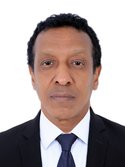
Salah A. Mohamed-Glueer
Aging of the heart
Atrial fibrillation
Cardiovascular diseases
Embryogenesis
Epidemiology of aortic and aortic valve disease
Evaluation and validation of drugs and biomarkers
Prof. Dr. Salah A. Mohamed has his expertise in evaluation and passion in improving the health and wellbeing. Dr. Mohamed is a professor of Experimental Cardiac Surgery at University of UKSH-Campus Luebeck in Germany; he is a laboratory and group leader, published within different reputed Scientific International Journals in connection with Biomarker Discovery work performed for the American Heart Association. He is awarded with the first price for his research in 2015 at the Ageing-Meeting "Treatment of Elderly Patients: The Challenge of the Future" in Halle, Germany. Currently Dr. Mohamed’s work dedicated research interests to aging, atrial fibrillation, biomarker, embryogenesis, aortic and aortic valve diseases. He also focuses on understanding the causes of atrial fibrillation and diagnostic tools investigating.
Dr. Salim Surani serves as Adjunct Clinical Professor of Medicine at Texas A&M University. He has served as the program director for Pulmonary Fellowship Program at Bay Area Medical Center, Corpus Christi. He has done his fellowship in Pulmonary Medicine at Baylor College of Medicine, Houston, Texas. Dr. Surani has done his master’s in public health & Epidemiology from Yale University and master’s in health management from the University of Texas, Dallas. Dr. Surani also served as a board trustee for THE CHEST Foundation and on numerous national and international committees. He is serving as editor in chief, editorial board member, and reviewer for several peer-review journal. Dr. Surani has authored more than 300 articles in the peer review journals and has written more than 50 book chapters. Dr. Surani is highly regarded among his peers and is very well respected as a mentor, clinician, and humanitarian.
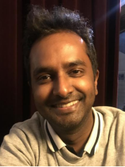
Sathish Thirunavukkarasu
Implementation science
Lifestyle interventions
Prediabetes
Prevention
Primary care
Type 2 diabetes
Dr. Sathish Thirunavukkarasu is an assistant professor in the Department of Family and Preventive Medicine at Emory University School of Medicine in Atlanta, USA. Dr. Thirunavukkarasu completed his medical degree, a diploma in Family Medicine, and a Master's degree in Public Health in India. He also earned a PhD in Epidemiology from the University of Melbourne in Australia. Following his PhD, he pursued two years of post-doctoral training at Nanyang Technological University in Singapore and another three years at McMaster University in Canada. His primary research interests center around "precision prevention of type 2 diabetes" through lifestyle and pharmacological interventions. He has published over 114 scientific papers, some of which have appeared in high-impact factor journals such as Nature Reviews Endocrinology, The Lancet Diabetes & Endocrinology, The Lancet Global Health, Annual Review of Public Health, Diabetes Care, and PLoS Medicine, often as the lead author.
Dr. Sebastian A. J. Zaat's research line, "Biomaterial-associated infection and novel antimicrobial strategies,” is focused on the pathogenesis, prevention, and treatment of biomaterial-associated infections, both in soft tissue (catheters, surgical meshes) and bone (implants, fixation devices). Since 2010, he has been a principal investigator and has extensive experience in the field of biomaterials and infection research, including research on antimicrobial peptides as alternatives to antibiotics. He was involved in or coordinated the BMM NANTICO “Non-adherent Antimicrobial Coatings” project, BMM IBIZA “Imaging of Biomaterial-associated Infection using Zebrafish Analysis," the EU FP7 BALI “Biofilm Alliance” project developing novel synthetic antimicrobial and antibiofilm peptides, the EU COST Consortium IPROMEDAI “Improved Protection of Medical Devices Against Infection,” and the Dutch National Consortia Craniosafe, SuperActive, and PHOTO-TREAT.
Shervin Assari, MD, MPH, is an associate professor of Internal Medicine, Family Medicine, and Urban Public Health at Charles R. Drew University of Medicine and Science. With a notable academic career, he has authored 450 papers focusing on inequalities, racism, and health disparities, particularly within the context of African American children, adolescents, adults, and older adults. Dr. Assari has made significant contributions to the academic community, serving on the editorial boards of various journals. Currently, he serves as the principal investigator of a grant focusing on the brain mechanisms that explain racial and socioeconomic inequalities in substance use. His theory of minorities' diminished returns has been widely recognized and explains why health disparities due to race are sustained regardless of socioeconomic status.

Shih-Min Hsia
Breast cancer
Dysmenorrhea
Endometrial cancer
Endometriosis
Leiomyoma
Ovary cancer
PCOS
Shih-Min Hsia is a professor in the Department of Health Nutrition, Institute of Metabolism and Obesity Science, and Department of Food Safety at Taipei Medical University in Taiwan. He has been awarded outstanding achievements such as outstanding teachers and distinguished professors. Professor Hsia's research interests are very broad. Most of the research focuses on exploring the alleviation effects of active ingredients in food or Chinese herbal medicine after intervention in target diseases, ranging from female diseases such as uterine fibroids, endometriosis, and polycystic ovary syndrome and menstrual pain, etc. as early research directions of the laboratory. In recent years, Professor Hsia has also conducted in-depth research on the mechanisms of obesity-related diseases or female cancers, including breast cancer, endometrial cancer, and ovarian cancer. Professor Hsia is currently leading a project aimed at understanding the effectiveness of functional foods in alleviating sarcopenia caused by anti-cancer drugs. It is expected to bring great benefits to the development of food as an auxiliary anti-cancer drug in the future.
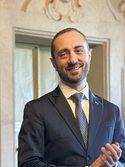
Simone Battaglia
Clinical Neuropsychology
Clinical Neuroscience
Cognition disorders
Cognitive neuropsychology
Cognitive Neuroscience
Executive Function
Memory
Neuropsychological assessment
Simone Battaglia, PhD, is currently an Assistant Professor in Cognitive Neuroscience at the Centre for Studies and Research in Cognitive Neuroscience, Department of Psychology, University of Bologna (Italy), and a Research Fellow at the Department of Psychology, University of Turin (Italy). His research experience focuses on investigating the intricate functional interplay of different brain areas involved in emotional learning, action control, brain plasticity, decision-making, and a variety of cognitive tasks. To this end, his research activities primarily revolve around the utilization of non-invasive brain stimulation techniques such as transcranial magnetic stimulation (TMS) and transcranial direct current stimulation (tDCS), in addition to employing various neuroscientific techniques to record physiological measures, including EEG, SCR, HRV, and EMG. He has conducted extensive research involving both healthy individuals, examining intra/inter-individual differences, and patients with acquired brain injuries. The overarching aim of his research is to develop innovative therapeutic protocols, with a particular focus on utilizing the cortico-cortical paired associative stimulation (ccPAS) method to facilitate neuroplasticity and enhance functional recovery.
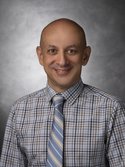
Simone Anfossi
Cell biology
Immunology
Cancer biology
Cancer research
Cell culture
Cell signaling
Molecular biology
Stem cell biology
Dr. Simone Anfossi is a molecular biologist interested in tumor immunology, tumor microenvironment, and extracellular vesicle biology. His research aims to understand the role of extracellular vesicles in mediating intercellular communication in the tumor microenvironment, with particular focus on the crosstalk between cancer cells and tumor-associated cells (immune cells and tumor-infiltrating nerves) and the effect on tumor progression, tumor immune escape, and treatment resistance development. The long-term goal of Dr. Anfossi’s research is the development of novel therapeutic strategies to target TME cells using engineered extracellular vesicles.
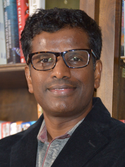
Srinivasa Subramaniam
Neurosciences
Aging
Alzheimer’s disease
Huntington disease
Neurodegenerative diseases
NeuroMolecular medicine
Parkinson's disease
Schizophrenia
Dr.Srinivasa Subramaniam is an associate professor (Tenure Track.). He obtained his Ph.D. in 2004 from the University of Heidelberg, Germany, where he worked on the molecular signaling that triggers neuronal death. At Johns Hopkins University, he addressed the mechanisms for tissue-specific dysfunctions for his postdoctoral research, focusing on Huntington’s and Parkinson’s disease. Both experiences continue to inform his work at the Scripps Research Institute. His areas of research include signaling mechanisms mediating striatal damage in HD, signaling mechanisms mediating abnormal movements in PD, and novel modulators of AD pathogenesis.
Dr. Sylvestre Bonnet is a full professor of Bioinorganic Chemistry at Leiden University. Between 2009 and 2014, he completed a tenure track position in Inorganic Chemistry at Leiden University, where he was tenured in 2015 and became a full professor in 2020. He obtained several prestigious grants, including a Starting Grant from the European Research Council (2013), a Transition Grant from the European Innovation Council (2023), and three young investigator grants (VENI 2008, VIDI 2012, and VICI 2019) from the Dutch Organisation for Scientific Research (NWO). Dr. Bonnet studies the (photo)chemistry of metal-based molecules in biological and biomimetic environments. By combining bioinorganic chemistry and photochemistry, his group makes new light-activatable prodrugs for use as targeted anticancer agents with minimal side effects. Another part of the group studies how to assemble metal-based photosensitizers and catalysts to trap the sun's energy into a solar fuel.

Terry Lichtor
Brain physiology
Brain tumors
Glioma
Medical neurosciences
Neurobiology
Spine surgery
Thyroid
Dr. Terry Lichtor is a clinical professor in the Department of Neurological Surgery at Rush University Medical Center in Chicago, IL, USA. He completed the internship in General Surgery at the Mayo Graduate School of Medicine in Rochester, Minnesota, in 1981–1982, and the residency in Neurological Surgery, at the University of Chicago, Chicago, in 1981–1987. He has also completed two Illinois Research Fellowships, including a research fellow in the Committee on Neurobiology at the University of Chicago, Chicago, Illinois, in 1987–1989 and a research associate in the Department of Cell, Molecular, and Structural Biology at Northwestern University, Chicago, Illinois, in 1989–1990. Dr. Lichtor has attained two licensures in the States of Illinois in 1982, Arkansas in 2008, Wisconsin in 2009, and South Dakota in 2011. He was on the National Board of Medical Examiners in 1982 and the American Board of Neurological Surgery in 1991. He has been a professor in many universities, including a research assistant professor at the Department of Cell, Molecular and Structural Biology at the Northwestern University Medical School, Chicago, Illinois in 1990-1991, an assistant professor at the Department of Surgery at the Harvard Medical School, Boston, Massachusetts in 1991-1992, an assistant professor at the Department of Neurological Surgery at the Rush University, Chicago, Illinois, in 1996-2003, a clinical associate professor at the Department of Neurological Surgery at the Loyola University Chicago, Chicago, Illinois from 1996, an associate professor at the Department of Neurological Surgery at the Rush University, Chicago, Illinois, from 2003, and a clinical professor at the Department of Surgery, New York Institute of Technology and Arkansas State University, from 2014. He was appointed as an attending neurosurgeon in many hospitals, including Little Company of Mary Hospital, Evergreen Park, Illinois, in 1987–1991, Beth Israel Hospital, Boston, Massachusetts, in 1991–1992, John H. Stroger Hospital of Cook County, Chicago, Illinois, in 1992–2007, and Edward Hines Hospital in 1996–2004. With broad research interests in medical and surgical emergencies in medical neurosciences, neurobiology and brain physiology, brain tumors, spine surgery, thyroid, and glioma, he is a member of the neurosurgery department at Rush University Medical Center.
Dr. Tiancai Liu is the Deputy Director of the Antibody Engineering Institute of Southern Medical University, a postdoctoral fellow of the National University of Singapore, and an imported talent of Southern Medical University. Dr. Liu is skilled in new in vitro diagnostic technology research and kit development. His research interests are in biology and laboratory medicine, focusing on genetic disease metabolism of small molecules, proteins, and nucleic acid mass spectrometry research. His main academic achievements are supported by the National High Tech Research and Development (863) Programme, the National Natural Science Foundation (Youth and General Program), the Doctoral Foundation of Higher Education Institutions, the Guangdong Provincial Higher Education Talent Introduction Project, and the Guangdong Provincial Natural Science Foundation. He has also participated in national major science and technology projects, sub-projects of national major science and technology projects, and National Natural Science Foundation projects. He has applied for three national invention patents, and one was granted.
Dr. Ton Lisman is a full professor of Experimental Surgery at the Surgical Research Laboratory in the Department of Surgery at the University Medical Center Groningen, The Netherlands. He is one of the few experts worldwide on clinical and fundamental research on bleeding and thrombosis in patients with liver diseases. In the past decade, through a combination of careful analysis of the clinical phenotype of these patients and in-depth laboratory analyses, his group has been able to redefine the clinical consequences of hemostatic changes associated with liver diseases. In particular, they demonstrated that patients with chronic and acute liver diseases are in a hemostatic rebalance due to a concomitant decline in pro- and antihemostatic forces. These novel insights have had profound consequences for clinical management and worldwide changes in the approach to treatment and prevention of bleeding in patients with liver diseases.
Dr. Vikrant Rai is an assistant professor in the Department of Translational Research at the Western University of Health Sciences, Pomona, CA. His research interests include investigating inflammatory molecular pathologies underlying various chronic inflammatory diseases and delineating immunomodulation and immunotherapeutic strategies. Prof. Rai has published more than 50 peer-reviewed articles and 11 book chapters. He has also edited two books.
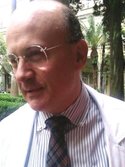
Vittorio Gentile
Biochemistry and molecular biology of transglutaminases
Neurodegeneration
Neuroinflammation
Dr. Vittorio Gentile is in the Department of Precision Medicine at the University of Campania Luigi Vanvitelli, Via Costantinopoli 16, 80138 Naples, Italy. Dr. Gentile is a recognized expert in the transglutaminase research area and has a strong background in the molecular biology and biochemical aspects of transglutaminase (TG) enzyme expression, activity, and function. His work has been focused on the tTG (TG2) characterization of normal and pathological cellular events (cell growth and differentiation, adhesion, apoptosis, neurodegeneration, and neuroinflammation) through biochemical and molecular biology studies. He received many awards and honors during his career. Dr. Gentile is an eminent member of several professional societies. He is also an editorial board member and reviewer of many peer-reviewed journals.
Prof. Dr. Walter Stewart is the CEO of Medcurio Inc., Oakland, CA, United States, and an adjunct professor of Epidemiology at the Johns Hopkins University Bloomberg School of Public Health. He has authored more than 400 scientific manuscripts, pioneered the understanding of EHR data uses for real-world evidence, and created successful academic research programs, start-ups, and healthcare R&D units. With more than 15 years of experience working in a variety of health systems, he has a deep understanding of what matters most to patients, providers, care teams, and operators in the delivery of healthcare. Prof. Walter Stewart conducts interdisciplinary research in psychiatry and clinical psychology, particularly focusing on migraine studies with connections to related disciplines like Aura. His work also integrates demography and gerontology into these studies.
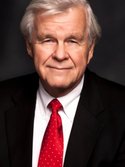
William M. Mitchell
Chronic fatigue syndrome
Immune mediated mechanisms
Intracellular pathogens
Liquid biopsy
Long covid
Myalgic encephalomyelitis
Neoplasia
Next generation sequencing
Dr. William M. Mitchell is a professor of Pathology, Microbiology, and Immunology at Vanderbilt University, Nashville, TN, USA. Dr. William M. Mitchell’s current active areas of investigation include the following: 1) Innate immunity is initiated by the activation of Toll-Like Receptor 3 (TLR3). The TLRs are microbial pattern recognition proteins that initiate innate immune responses to microbial invasion. 2) Next-generation sequencing (NGS) applications. We have used a variety of NGS platforms to develop new diagnostic massively parallel sequencing methods for the real-time evaluation of the efficacy of cancer therapy using plasma or serum analysis of DNA from apoptotic neoplastic cells. 3) Pathogenesis of human intracellular pathogens. Our current focus is on the pathogenesis of latency in two microorganisms: a) Chlamydia pneumoniae is a recently recognized member of the genus Chlamydia. b) The human immunodeficiency virus (HIV) is the etiological agent of the Acquired Immunodeficiency Syndrome (AIDS). Current studies are focused on HIV latency.
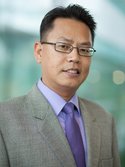
Wonkyu "Daniel" Ju
Alzheimer’s disease
Glaucoma
Glial cells
Mitochondrial dysfunction
Mitochondrial protection
Neuroinflammation
Oxidative stress
Retinal ganglion cell
Wonkyu Ju, Ph.D., is a Professor of the Viterbi Family Department of Ophthalmology specializing in Glaucoma at the University of California, San Diego, USA. Dr. Ju received his M.S. and Ph.D. in the Department of Anatomy at the Medical College of Catholic University in Korea and then completed a post-doctoral position in the Department of Ophthalmology and Visual Sciences at Washington University in St. Louis, USA, studying the cellular and molecular mechanisms of cell death and protection in retinal ischemia and glaucoma. Dr. Ju’s current research focuses on the fundamental issues of mitochondrial network and function in neurodegeneration, neuroinflammation, and neuroprotection in glaucoma and Alzheimer’s disease. He has an extensive publication record, with over 60 scientific papers and book chapters, and has received support from the National Institute of Health (NIH) in Maryland, USA. He has also contributed as a reviewer for numerous scientific journals and has held a standing member position at the NIH, USA.
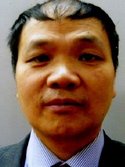
Xinhua Shu
Cholesterol homeostasis
Disease mechanisms
Inflammation
Neurodegenerative disorders
Oxidative stress
Therapy
Dr. Xinhua Shu graduated from Xiangya School of Medicine with a Ph.D. in Pathobiology (1999) and was then awarded a Wellcome Trust Travelling Fellowship to work at the University of Glasgow (1999–2001), where he worked on human fungal diseases. From July 2001, he moved to the MRC Human Genetics Unit in Edinburgh to work as an Investigator Scientist (2001–2005) and then Senior Investigator Scientist (tenured), focusing on the disease mechanisms of retinal disorders. In February 2010, he joined the Department of Biological and Biomedical Sciences at Glasgow Caledonian University to continue his studies on the pathogenesis of neurodegenerative disorders. Dr. Shu has published over 90 peer-reviewed papers. He has also been a reviewer for a lot of scientific journals.
Xiong Ma, MD, PhD, earned his undergraduate degree from Zhenjiang Medical College in 1991 and received his doctorate from Shanghai Jiao Tong University School of Medicine in 2001. He is a member of the Shanghai Society of Hepatology and the vice-chief member of the Chinese Society of Hepatology Young Member Board. He serves as director of the Shanghai Autoimmune Liver Disease Group. He became a member of the International Autoimmune Hepatitis Group in 2011. Dr. Ma’s research interests are mainly focused on autoimmune liver diseases and nonalcoholic fatty liver disease. He received four grants from the National Natural Science Foundation of China and the National Distinguished Young Scholarship in 2013.
Prof. Yi-Wen Liu is a researcher in the field of basic medicine, with expertise in both basic and translational research. Her work focuses on the pharmacology of cancer and inflammation, traditional medicine, and gene regulation. In her research program, she focuses on the molecular mechanisms of cancer progression, cancer biomarkers, and new drug studies in cancer and inflammation. In addition to basic research and translational studies, she is interested in pharmacological education and scientific communication. She consistently supports the scientific program in the departments of National Chiayi University in Taiwan. Many undergraduates, graduates, and physicians have worked and received training in their programmes. They perform comprehensive biomedicine career and research functions, including the study of urinary cancer, colorectal cancer, cancer immunotherapy, the design of new anti-cancer drugs, molecular diagnostics of cancer, and social services.

Yong-Xiao Wang
Asthma
Basic and translational research
Cardiac hypertrophy
Chronic obstructive pulmonary disease
Diabetes
Pulmonary hypertension
Dr. Yong-Xiao Wang has been a full professor in the Department of Molecular and Cellular Physiology at Albany Medical College since 2006. Dr. Wang obtained his MD at Wannan Medical University in 1983, his Ph.D. at Fourth Military Medical University in 1990, and his postdoctoral training at the Technology University of Munich from 1993 to 1955, as well as at the University of Pennsylvania from 1995 to 1996. He served as an assistant professor at the University of Pennsylvania from 1997 to 2000 and as an associate professor at Albany Medical College from 2001 to 2006.
Dr. Wang has been primarily working on basic, translational, and drug discovery research concerning cardiac arrhythmia, cardiac hypertrophy, pulmonary hypertension, asthma, chronic obstructive pulmonary disease, and diabetes for over 30 years. In particular, he has had extensive research experience in the studies of the molecular geneses, regulatory mechanisms, signaling pathways, physiological functions, and critical roles of ion channels, cell calcium, reactive oxygen species, and neurotransmitter receptors in the aforementioned devastating diseases using multiple and complementary molecular, biochemical, physiological, pharmacological, and genetic approaches at the molecular, organelle, cellular, tissue, and organism levels in animals and human samples.
Dr. Yufeng Zhou got his B.S. (1996) and M.S. (1999) degrees from the National Key Lab of Modern Acoustics, Institute of Acoustics, Nanjing University, China. He obtained his Ph.D. degree from the Department of Mechanical Engineering and Materials Science at Duke University and majored in Bioacoustics in 2003.
Dr. Zhou worked at Duke University between 2003 and 2006, at ImaRx Therapeutics Inc. in 2006, at the University of Washington from 2006 to 2010, and at Nanyang Technological University from 2010 to 2020. Since 2021, he has joined Chongqing Medical University as a professor at the College of Biomedical Engineering, State Key Laboratory of Ultrasound in Medicine and Biology, National Engineering Research Center of Ultrasound Medicine. His recent research interests are biomedical ultrasound in therapy and diagnosis, nondestructive evaluation and testing, and acoustics.
Dr. Yujing Li works in the Department of Human Genetics at Emory University in Atlanta, GA, USA. He received a Ph.D. degree from the Institute of Genetics, Chinese Academy of Sciences, Beijing, China (currently the Institute of Genetics and Developmental Biology, CAS). His research interests include human genetics, epigenetics, genomics, neurology, and molecular biology. He has authored more than 30 research articles and several book chapters. He is a member of the American Society of Human Genetics.
Prof. Yuxia Luan studied at Shandong University for her PhD. Her postdoctoral study was performed at the University of Montpellier II and the Technical University of Munich. She has authored more than 80 high-impact papers published in journals, including but not limited to the Journal of Colloid and Interface Science, Biomaterials, International Journal of Nanomedicine, Acta Biomaterialia, and Journal of Controlled Release.
Dr. Zheng Zhang works at the Department of Gastroenterology at the Beijing Friendship Hospital, Capital Medical University. His clinical expertise is in the diagnosis and treatment of gastroenterology diseases such as reflux esophagitis, esophageal ulcer, chronic gastritis, gastric ulcer, duodenal ulcer, esophagofundus varices, gastrointestinal early cancer, and colon infection.
Dr. Zhongwei Gu is from the Chinese Academy of Medical Sciences, Chengdu, China. His study of biochemistry is mostly dedicated to connecting different topics, such as in vitro and genes. His immunology study frequently draws connections to other fields, such as the immune system, antigens, antibodies, and adjuvants. Dr. Gu is involved in research in relevant fields, such as drug and bioavailability, in the domain of pharmacology. Dr. Gu undertakes interdisciplinary studies in the fields of drugs and pharmacology through his work. Dr. Zheng Zhang works at the Department of Gastroenterology at the Beijing Friendship Hospital, Capital Medical University. His clinical expertise is in the diagnosis and treatment of gastroenterology diseases such as reflux esophagitis, esophageal ulcer, chronic gastritis, gastric ulcer, duodenal ulcer, esophagofundus varices, gastrointestinal early cancer, and colon infection.
Prof. Byron Baron is a biochemist specialising in proteomics with a keen interest in methylation. He is an associate professor with the Centre of Molecular Medicine and Biobanking at the University of Malta. His research interests span a broad range of topics, with the main ones being colorectal cancer, chemoresistance, mesenchymal stem cell applications, neuronal differentiation, methyltransferase interactions, mass spectrometry, proteomic method development, agrichemical bioaccumulation, and sustainable agriculture. His research activities focus on answering basic science questions that are of clinical or environmental relevance, doing research with both in-vitro models and patient or donor material to generate 2D and 3D organoid cell cultures to which many protein analysis techniques are applied.
Dr. Junfeng Wang is a researcher in the Division of Pharmacoepidemiology and Clinical Pharmacology at the Utrecht Institute for Pharmaceutical Sciences, Utrecht University. He has completed the project "Next Generation Health Technology Assessment to support patient-centered, societally oriented, real-time decision-making on access to and reimbursement for health technologies throughout Europe (HTx)". His research interests focus on methods and statistics, biostatistics, clinical epidemiology, survival analysis, statistical meta-analysis, and health economics.
Dr. Walfre Franco is an assistant professor of Biomedical Engineering at the University of Massachusetts, Lowell. Before joining UMass Lowell, Dr. Franco was an assistant professor in the Department of Dermatology at Harvard Medical School (HMS) and an assistant in Biomedical Engineering at the Wellman Center for Photomedicine at Massachusetts General Hospital (MGH). Prof. Franco has led the translation of medical devices from concept to commercialization in academic and industrial settings. Prof. Franco's research initiatives span the design, development, and fabrication of devices, sensors, and computational tools for solving health-related problems.


